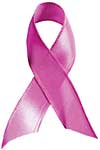



 Body chemical for cancer cure
Body chemical for cancer cure
a protein molecule that ferries signals across nerve cells may now help alleviate breast and colon cancer. Researchers from Chittaranjan National Cancer Research Institute, Kolkata, and Mayo Clinic Cancer Center, Mayo Clinic, us, have found that dopamine, a neurotransmitter, inhibits growth of tumour cells, alone and in combination with anti-cancer drugs. Dopamine stops proliferation of cancer cells by disrupting the growth of tiny blood vessels that nourish the renegade cancer cells. "Dopamine is a low cost drug with minimum toxic effects," says Partha Sarathi Dasgupta, the lead researcher. The findings of the study were published in Clinical Cancer Research (Vol 14, No 8).
Toxicity of anti-cancer drugs and resistance of cancer cells to existing anti-cancer drugs have been worrying issues for long.This led the researchers to devise new strategy to destroy the unruly cancer cells. In a previous research, the same group had found depleted levels of natural dopamine in gastric cancer patients. Then the researchers found that dopamine treatment stifled the growth of human gastric cancer cells grown in mice. The result paved the way for present research.
To see whether dopamine works against breast and colon cancer, the researchers grew breast and colon tumour cells in mice and divided the mice into four groups. For mice bearing breast tumours, one group received only dopamine, another group doxorubicin (drug against breast cancer), the other group dopamine plus doxorubicin and the fourth group treated as controls. The mice bearing colon tumours had same treatments except these animals received 5-fluorouracil, drug against colon cancer.
The combination of dopamine and doxorubicin decreased breast tumour volume by 63 per cent and increased life span of the mice by 90 per cent. Dopamine alone increased life span by 24 per cent and doxorubicin alone by 38 per cent. On the other hand, combination of dopamine and 5-fluorouracil increased the colon tumour bearing mice by 97 per cent and caused the tumour to shrink by 58 per cent.
"Dopamine reduces the dose of anti-cancer drugs by increasing the drug availability in tumour tissue," says Dasgupta. "The research is very promising," says Nitai P Bhattacharyya, head of Crystallography and Molecular Biology Division and Structural Genomics Section of Saha Institute of Nuclear Physics. "The next step is to test dopamine in human beings. Though the findings are relevant for colon and breast cancer, it will be interesting to know whether the same treatment is effective against other types of cancers," says Bhattacharyya.
We are a voice to you; you have been a support to us. Together we build journalism that is independent, credible and fearless. You can further help us by making a donation. This will mean a lot for our ability to bring you news, perspectives and analysis from the ground so that we can make change together.

Comments are moderated and will be published only after the site moderator’s approval. Please use a genuine email ID and provide your name. Selected comments may also be used in the ‘Letters’ section of the Down To Earth print edition.